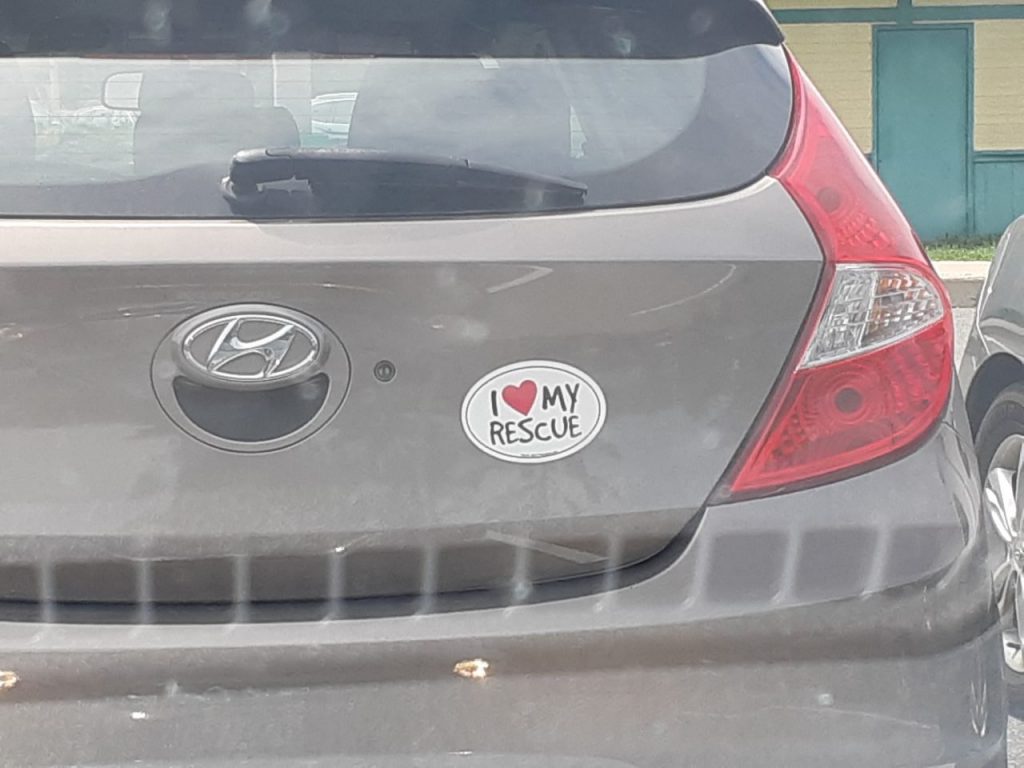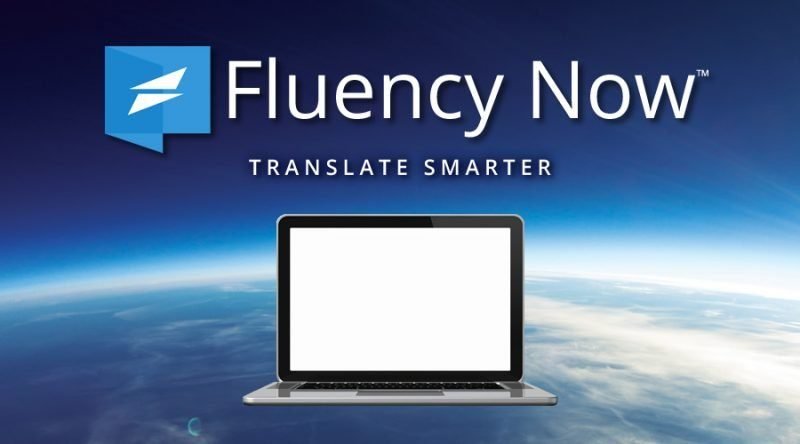Marketing will make it or break it for your business, they say. Marketing is also called “the flower” of business, and all kinds of new marketing techniques and ideas for the Internet age are bursting out at such a rate that you can hardly keep up. Unfortunately, however, almost none of them are relevant to freelance translators. After all, we are in a pretty weird (or fantastic) career.
Also, there are specific pieces of advice recommended by translation industry experts and gurus. There are several translation marketing strategies specifically geared for freelance translators that are presented through books, blogs, and webinars. However, I seriously doubt their efficacy. I often wonder if the so called experts did really try these methods themselves before telling us what to do.
In this post, I will examine unique difficulties in translation marketing for freelance translators, why most of the marketing methods are irrelevant and do not work for freelance translators, and will present a surprising solution for you. It is so simple that it may be disappointing, but it may be really encouraging and liberating, all depending on your perspective. I can assure you one thing, though. Unlike other marketing experts who only talk and talk in the same way as they do to everyone, I speak from my experience and only from the perspective of a freelance translator.

Why You Need Translation Marketing
If you’re translating as a business and not as a hobby, you must also work on marketing as all businesses do. Without constantly finding clients and selling your translations by presenting yourself as a good translator capable of translating a certain types of documents accurately, your freelance translation business will wither. Generally, translators are introverted, and while they are generally good at putting effort into producing good translations and self-discipline, they aren’t very good at asserting to others that they are an “excellent translator”. (I’m not good at this either, but I want to share my thoughts on this with you anyway.)
How Are Translators Doing in Terms of Translation Marketing?
According to a survey provided by ProZ, an average translator spends around 30% of his/her time looking for new clients. (It is not clear how they are looking for new clients, though.) Marketing is important, so you can’t help spending a little time doing some form of it, but if you ask me, 30% is way too much! That time could have been used to hone your translation skills, reading translation courses for your career development, or your much needed rest to re-charge yourself. And how efficient and effective are they in their marketing efforts? I don’t know. Think of your case. How much time do you spend on marketing, and how effective is it? Are you satisfied with your marketing results?
Some of the Suggested Marketing Methods That Do Not Work for Freelance translators

Direct marketing
Direct clients are always a possibility even in this time of omnipresent Internet and it is very likely that you can earn more from them than from translation agencies. So, if you happen to know such clients, good for you! If you have industry connections to secure direct clients, again, good for you! Go secure your business! If you are like me and do not have that luck, however, going for direct marketing and looking for direct clients is the worst marketing method ever. You don’t translate all the languages in the world; instead, you translate only for one language pair. You don’t translate documents of all fields; instead, you translate for a specific field of your expertise. You cannot accommodate all your client’s needs; instead, you can only deal with a specific stage of your client’s long process of globalizing their product: translation. Then, how on earth are you going to find that specific client? We are talking about a really small number of clients scattered all over the world who are looking for a Korean to English translator with pharmaceutical and medical expertise for their clinical-trial related medical document for a specific time period, for example. Good luck with that! If you can find a handful of such clients and secure their business, you are a marketing genius and you should seriously consider changing your line of work.
Conferences
Some people recommend attending business conferences. If you specialize in game translation, for example, you can attend game conferences to make acquaintances with other people there and get ready to produce your business card any time.
Well, again, if you are a translation agency that specialize in game translation and can deal with many languages, that is a possibility. But remember, you are a freelance translator who can translate only in one language pair. What is the possibility of finding there the exact kind of client you are looking for? Besides, wouldn’t that client and all other people in the room need translation into other languages as well? Would they need to translate their game only into Thai and not other languages? Then, why would they be interested in having business with you instead of some translation agencies that can deal with all or most of Asian languages, for example?
Another consideration is time and money. Do you really have the time and energy to keep track of these events and the time and money to actually travel to another city? Even if you live in a big city like Toronto or New York, you still need a whole day to meet any possible lead. Can you afford to give up your working day for such an unpromising marketing effort? Even if you manage to give your business card to a prospective client, you will have spent quite a lot of money (admission, travel expenses, lunch, etc.) and lost a few hundred dollars of work income (opportunity cost).
Creating a Homepage or a Blog for Translation Marketing
Some people argue that an online presence is the most important in this Internet age and you should create a home page or a blog as your translation marketing base. They also argue that having a good homepage or wonderful blog will earn you your client’s trust. Yes, having an online presence is important for many reasons and yes, it can reassure your client that you are not a scam and a reliable resource who takes translation seriously.
As a means of marketing, however, I don’t recommend it unless you are already an IT expert and intend to be translating in that field. Think of the enormous time and energy (and some money) you should put into it. Designing your homepage or creating blog content is already a difficult job, but doing SEO is a whole lot different matter. I feel like it is a bottomless pit. You have to study a lot and spend quite a lot of time and effort to get any result. By result, I mean getting your page on the first page of Google search. You need high quality content and on-page and off-page SEO to get any degree of success. Can you really regularly produce high quality content that can be appealing to your clients (important: not other translators)? Can you really beat translation agencies and associations that regularly produce high quality posts with strong IT support? Remember, these posts are written for translation clients, not for translators. You could definitely put these resources to a better use that I will explain later.
In addition, the possibility of your clients finding you through your homepage or blog is pretty slim. Think in your client’s shoes. For reasons I explained earlier, they will not go search for translators themselves. Even if they need a specific translator for a single language pair, will they really start with googling “best translator” or something? Even if they search specific terms like “English to Vietnamese engineering translator” or “English to Spanish patent translator”, it will not be your homepage or blog they will find. Try it yourself and see if you (or any other freelance translator) can really beat them and get their blog (full of content about their freelance translator life, which may be interesting to other freelance translators but not interesting at all to translation clients) on the first page of search result.
Being Active in Social Media Sites
Gurus say this is a free and effective way to market your translation service. Again, I doubt it. I cannot say anything with confidence about this because I haven’t tried it yet. If anybody had any degree of success with this method, please let me know because I have not met any yet. And I don’t plan to try it myself either. Why? Look at your social media page. Who do you find there? If you are a freelance translator, chances are your friends are other freelance translators (and real friends outside your profession), not your clients. Simple fact: your clients are not your friends and they don’t want to hang out with you.
In addition, people are already spending too much time on social media. Do you really want to spend more time instead of working on translation or boosting your translation career? Don’t kid yourself when you say this is your marketing activity when you post your lunch at a fancy restaurant and recent trip to a neighboring city. Your clients (and probably other people as well) are not interested in them at all.
Finally, if you are a translation client (a direct client or an agency), would you really look into social media pages to find a qualified translator? If they want to know what a road sign in a foreign language means, or if they are looking for just any translator with no reputation and no credential, they maybe do that. But if they want an excellent qualified translator to do a serious business with, I doubt they will go to social media sites instead of translation marketplaces where they can find thousands of professional translators to choose from and they can see all the profiles as well as other clients’ feedback on their past translation work. Does any social media have that kind of features?
Advertising Online
When it comes to getting your name on the first page of Google search results, this is a way to beat other agencies who have strong online presence if (and that is a big IF) you are willing to spend hundreds of dollars each month. Even if you cough up a considerable amount of monthly marketing budget for an online ad, you will soon find you are up against translation agencies marketing themselves for the same key word. (You must outbid other advertisers like translation agencies.) Big or small, marketing budget is a heavy burden for beginning translators. Even the minimum budget (for example, $150 per month for Google ad) is a big burden for them.
In addition, it is a completely different matter if your clients will actually make a contract with you and assign real translation work. (That is not likely due to the reasons I explained elsewhere.)
What to Do Instead?
Before going into my strategy, I would like to share a shocker: I don’t do marketing, and I don’t need any more clients.
A shocker? Perhaps, if you are a beginning translator. However, this is not just me. I think most seasoned translators are like me. Ask them if you know some. They will probably tell you the same.
Do you think translators who do not need any additional clients are marketing geniuses and probably did some great marketing in the past? Well, yes and no.
The main reason why a freelance translator like me does not need additional clients is, well, because we are freelance translators. We are not machine. We are not automated program that can work 24/7. There is a clear limitation on how much we can work. As a result, there is a clear limitation on how many clients we can have. Looking at my invoice records for the last 10 years, I have had 129 clients, including one-time clients with a very small project. Looking at last month’s record, however, I have only 15 clients in total. There are months when I have even smaller number of clients. You know, that is a sufficient number. Even if I wanted, I couldn’t accept more clients or more translation assignments. I could raise rates but not the number of clients or projects.
My question is, then, do you really want to go all the trouble of above-mentioned marketing efforts to get 15 clients? Probably not. You can surely get 15 clients without that. Of course, you have to do something that I will explain later.
Another question: was any of my 15 clients a result of my translation marketing? No. I did none of the above except for my failed attempt of an email campaign. Let me explain.
My thoughts on a translator’s marketing are based on two considerations. One is my own experiences and the other is my thoughts about the distinct characteristics of the translation world.
My Failed Marketing Efforts
When I first started translation, I had no idea how to market my service, so I read some articles on the Internet and followed what other people said (basically what other translators wrote). I patiently and diligently sent emails to countless agencies. This is known as an email campaign, and I tried to do it as effectively as possible using technology, but I still remember it took at least a few weeks.
Looking back, the time and effort I spent on that were the biggest waste in my entire translation career, because it bore no fruit. Actually, I think I did receive two or three replies. They said they’d “consider it.” However, the fact that those kinds of replies were the only result of the several hundred emails that I sent shows that sending the emails was a pointless endeavor. I can’t remember exactly, but I don’t think even the two or three agencies that responded back to me actually assigned any actual job. This is the reality, and I bet it makes the market seem to have impossibly high hurdles to people first starting translation.
But there is no need to be disappointed. My failure was because I approached the translation market in a completely wrong way, not knowing the reality. If I made and sold screws and sent samples of my screws here and there telling people that I’m selling this product for this price and to consider buying it, most companies and people would have at least listened to me out of interest. However, what I’m trying to sell isn’t screws, is it? It’s not a product you can see or touch but an intangible service. So the decision to purchase such a service would depend on my credibility and trustworthiness. That’s why the method I used in the past failed so miserably.
[bctt tweet=”What I’m trying to sell as a translator isn’t screws, is it? That’s why my method failed so miserably.” username=””]
How I Found a Sufficient Number of Clients
So then, what worked? Well, after my failed attempt, I really didn’t know what to do. I thought of other ways but did not have means to implement them. So, I just kept going what I was doing. I did bidding many times and got a handful of replies. I tried to get business from them and succeeded a few times. Then what did I do? I translated, of course. (Don’t laugh.) I did my best when I worked on my translation, being grateful that I could earn money this way. I searched up every single term that I was unsure of, and read my own translation over and over again to improve the flow and catch any possible error.
Then, something unexpected happened. My client a few months ago came back to me with another translation request. Please note that it didn’t happen through bidding. Simply an email came, requesting another translation. Later, yet another request, and then another… That way, my client base expanded rapidly (it is debatable if it was really “rapid” depending on your perspective), and I had to stop bidding because my plate was full after one and half years since I started freelance translation. I needed better clients so upgrading my clients continued for many years afterwards but basically I did not need “more” clients.
I hesitate to say this but my translation marketing method was my translation quality. With high quality translation, you have to build your client base one person at a time, one company at a time. That’s why there is no overnight success in the translation market. Talent-less translators don’t prosper, either. The only way to succeed is by satisfying one client at a time with your high-quality translations until you have built up a good number of clients.
[bctt tweet=”The only way to succeed is by satisfying one client at a time until you have built up a good number of clients.” username=””]
Why This Method Works

Let’s look at it from the translation client’s perspective. Finding a good translator is a very time-consuming and quite possibly frustrating process for translation clients.
They need translation because they have something very valuable. So valuable that they need translation of it. Then, what do they look for when they are in need of a translator? A fancy résumé of translators? How attractive they look? I promise you, there is no need for you to go through all the garbage advice out there. You don’t even need to try to write a fantastic résumé. (Of course, you still have to have a quite decent résumé with all the necessary elements. I’m just saying there’s no need to make it showy and fancy.) That’s because translation clients are just not interested in those kinds of things. Actually, clients often don’t even have the time to read them.
What clients really need is the “experience” of having entrusted you with a translation and then having received an excellent translation back from you. Clients can tell the quality of your translations, and if they don’t know the language, they would check the quality of the translation in other ways. If it were you, wouldn’t you also check the quality of a translation that you paid a lot of money for?
Because translation is more of a service than a product, even with the same source text, the translations will turn out differently with varying quality, depending on the translator. For that reason, it is very difficult and time-consuming for translation clients to buy high-quality translation. In order to buy good translation, they must go through the trouble of sifting through countless translators. As we all know, all translators claim that they’re excellent translators.
More important aspect of the translation client’s purchase of translation is that low-quality translations have pretty fatal consequences for them. They can end up suffering an enormous financial loss, their public image can be tarnished, the results of a court trial can be changed… For that reason, a translator might get away with selling a poor quality translation at an expensive price once or twice, but it’s virtually impossible to do in the long term. In other words, a translator who can only produce low-quality translations is doomed to remain in the lowest class of the market. This is true for any language and any field. You know the saying: you can fool everybody some of the time or fool one person for a long time, but you can’t fool everybody all the time.
This is why clients also try very hard to maintain a good relationship with a translator once they’ve found a good one. To save the time and money to find another good translator on the one hand, and to save money a few thousand to millions of dollars that could be wasted due to bad translation, on the other.
Word-of-Mouth Marketing Works Even in This Internet Age
There is another reason. Word of mouth sounds like something that’d be obsolete in the Internet translation market, right? Well, actually, agencies fight over capable PMs and exchange information about competent translators amongst one another as well. This is just another reason why the method I’ve told you about is a powerful marketing method.
“Compound Interest” Way of Increasing Your Translation Client Base
Although achieving success only through the quality of translation may not be a very interesting method, isn’t popular, and takes a long time to achieve any level of success, it is also the most reliable method. This method also doesn’t take as long as people might think it does. That’s because it’s actually rare for a customer to only need translation work once, and most customers need translation repeatedly. This is even truer of translation agencies. For this reason, the “one client at a time” method has a similar effect to that of compound interest.
[bctt tweet=”The “one client at a time” method has a similar effect to that of compound interest.” username=””]
For example, let’s say that you obtained (probably through bidding) and finished a project successfully. Even if that client contacts you just once a month from that time on, it means you’ve secured 12 projects for the following year. Then, thinking conservatively, even if you add just one new client per month, after 2 years, it would mean you would be receiving 24 projects a month. If you’re at that level, you probably won’t even be able to accept any more jobs. If that’s the case, you graduate from stage 1 of becoming a translator! Then, you enter into a new business stage. I only used this example to explain it more easily, and it actually takes much less time. For example, if you can secure two clients a month, the process would shrink to one year. Also, if you utilize your clients’ feedback, finding new clients becomes much easier and you can increase your tempo (ProZ has a system for this). At that point, you can make two or three new clients per month instead of just one.
As you can see, the “one client at a time” method isn’t so bad and will not fail. The client base that you’ve built in this way is a solid business foundation that nobody can take away. Don’t worry about trying all kinds of marketing methods, and don’t send emails that won’t be read to companies and clients you don’t know. Instead, increase the quality of your translation with the mindset of securing one new client a month. When translating, give it your all as if each project was the most important thing in the world. That is the best form of marketing.
[bctt tweet=”When translating, give it your all as if each project was the most important thing in the world.” username=””]








